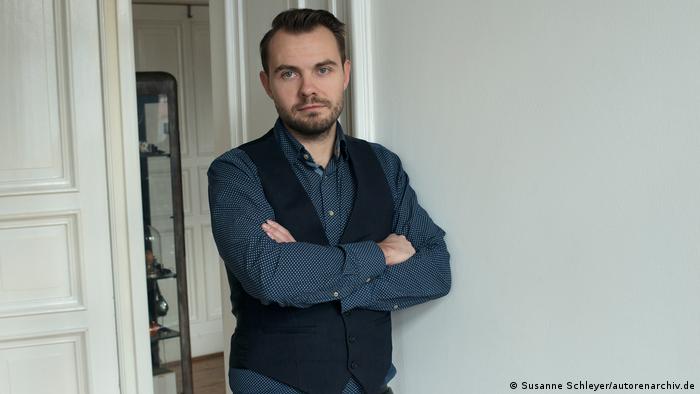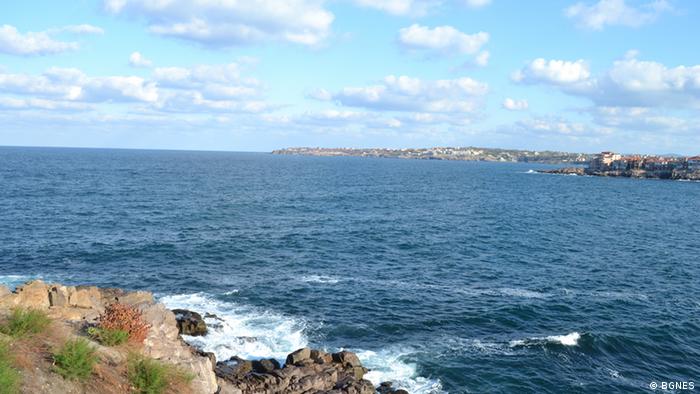Maybe Stagnation is not always a disaster, but sometimes their good, soothing pages. Also this is kind of a symbol for Europe in the year 2019.

Christopher Nehring: Stagnation is not always a disaster
In the old fishing village of Sozopol, on the Bulgarian black sea coast there is a small embankment, past all the beach bars and Restaurants. Just behind the old gate, and above one indentation is located, there are two benches under an old, huge Fig tree. In the shadow of the tree of the views of the Bay of Sozopol, at the top of some stone stairs stretches.
Ten years ago, in September 2009, I sat last on this Bank. At that time, Bulgaria was just fresh in the EU, I visited for the first Time, the Apollonia cultural festival, held annually in the first week of September in the popular resort. Now, 10 years later, I came back to Sozopol and Apollonia, seats under the same Fig tree and ponder about what has changed since then. Or not. And what could this mean for the idea of Europe.
A name of a patron Saint and his legacy
Beach holidays and cultural festival – sometimes the Basis of a good idea is very simple. The are also a number of Bulgarian thought cher artists, as in 1984, called the days of the Cold war, after the Greek God of arts Apollo, named Festival in the small old town of Sozopol, 30 minutes South of the port city of Burgas and around 1 hour North of the Turkish border, to life. Since then, Apollonia, and encompasses all forms of artistic creation, from painting, dance, theatre, Film, classical music, Jazz and Bulgarian folk music. 2019 so it was time to celebrate the 35 years of the festival. 35 years, six of them under the Communist Regime, and the last 10 as a proud EU member country.
The name of the patron referred to the times when the Bulgarian Communists sought to use in the 1980s, the mobilizing power of ethno – centric nationalism on a pan-European cultural heritage of Greek-Roman antiquity. A Greek-Roman Name and a content, which should be filled with Bulgarian culture. Whether national culture has been under a pan-European heritage of the founders as a contradiction, as a silent Protest against the isolation policy of the Socialist camp, or as an expression of a “unity in diversity”, as it is today, the EU’s Motto, thought, is not recorded. Maybe it was a little bit of everything.
“Apollonia – the Bulgarian Festival!”
Under these circumstances, Apollonia, began in 1984, when Europe was divided by the Iron curtain still strict. The tourist centers on the Black sea already since the 1960s, a pan-European meeting place. Under the umbrellas and in the case of beer, fried sprats, and the obligatory Shopska salad (tomatoes, cucumbers, white cheese) came together already at that time, Europeans from East and West, North and South.

The coast of Sozopol – a European meeting place on the Black sea
Nevertheless, a national, Bulgarian cultural festival remained, and remains of Apollonia, in the first place. Today, the 35. Birthday, ends the Announcement of the event website with the declamation: “Apollonia – the Bulgarian Festival!”. Foreign artists came to the stage, foreign visitors of most of the events you can count even today on two hands. The language of Apollonias is not monolingual Bulgarian, Translations or subtitles are there. Theatre, fiction, Film and song are so entirely occupied with Bulgarian artists. Including sometimes such prominent names as the much-translated writer and playwright Georgi Gospodinov. International guests are mainly represented in the fields of Instrumental music and painting, so the non-verbal arts. In 2019, for example, the Argentine Tango master Mattias Gonzalez from Argentina or the Dixieland were the Band of the U.S. Army in Europe.
“Music and Love”
Both of which I missed deliberately, instead of two visits to the theatre (both of Sofia’s “Little City theatre behind the canal” / “Malak Gradski Teatar zad channel”) and two concerts (Jazz Piano and classical cello) were on the program. Both plays turned out to be a deep disappointment, the rewriting of my seat neighbor as “uninspired, vulgar screaming”. Both concerts, which were held in the atmosphere of the archaeological Museum of the city, however, were a real treat. Addressed to the European spirit of Apollonia the Jazz Pianist Zhivko Petrov replied briefly and clearly: “Music and Love”. Although there were deeper thoughts to the European idea, it was after all a approach. The language of music seems to be for all, to teach Bulgarian as well as international guests – 2019 a much clearer message than any conversation.
Shortly before the departure with the Bus to Burgas, the cost is still the same 5 leva (the equivalent of around 2.50 euros) 10 years ago, I’m sitting on the same bench under the same tree. Clearly a sign indicates that this is a place in the course of a Bulgarian-Turkish infrastructure project with EU funding was renewed. Here, too, a pan-European Label on a national content – and a mirror for the condition of Europe.
Apollonia is over, a special European Dimension of the very Bulgarian Festivals, I could not find and I feel in Sozopol, neither more nor less European than 10 years ago. Perhaps a metaphor for the Stagnation of the European idea, I think. Then I bite sprats in the same delicious deep-fried, drink the same fade Bulgarian beer and look at the same beautiful sea. Maybe Stagnation is not always a disaster, but sometimes their good, soothing pages. Also this is kind of a symbol for Europe in the year 2019.
Christopher Nehring, born. 1984, is scientific Director at the German spy Museum in Berlin. He has studied Eastern European and modern history in Heidelberg and St. Petersburg, and a doctorate in 2016, a subject of the secret service history. His newest Bay is “The 77 largest espionage myths”, published by Heyne, München, 2019.